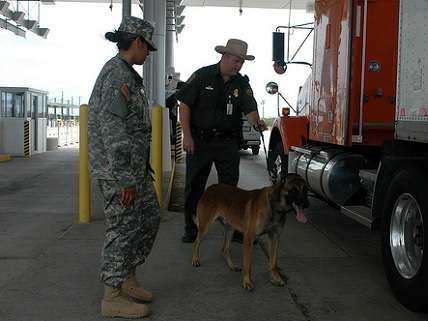Ninth Circuit Rules Government Agents Need Reasonable Suspicion to Search Laptops, Other Property at Border Checkpoints
No reasonable suspicion previously needed at border

The Ninth Circuit Court's handed down a ruling limiting the power of government agents to search your property at border checkpoints. Lawfare explains:
The Ninth Circuit sitting en banc has decided US v. Cotterman, a case involving the search of a computer laptop by DHS agents at the border. Traditionally, the law has been that searches at the border are plenary and require no suspicion at all — they are reasonable because they occur at the border and because a sovereign has control over goods and people who enter or exit its territory.
Cotterman rejects that general rule. It concludes that given the comprehensive and intrusive nature of searches into the contents of laptops the government must articulate a "reasonable suspicion" before it may search the contents of a computer system.
Michael Price, counsel for the Brennan Center for Justice, which filed an amicus brief in the case, made the following statement:
"We applaud the Ninth Circuit for recognizing the need to limit the government's authority to search electronic devices at the border. Until now, the government had free reign to search travelers' personal data at the border, to keep it, copy it, and browse through every line without any reason to suspect criminal activity. But in today's watershed ruling, the Court drew a line in the sand and recognized that the vast amount of personal information and sensitive data on laptops, cell phones, and other electronic devices is worthy of Fourth Amendment protection."
One of the judges on the Ninth Circuit Court, Alex Kozinski, a self-described libertarian, recently sat down to talk to Matt Welch for Reason TV. Watch here:
